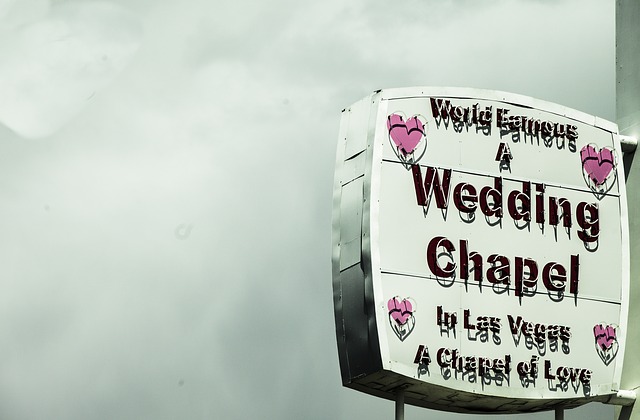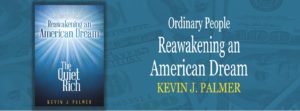
While on a cross-country flight, I met a man who turned idealism into financial reward in the most unlikely of places—high-rolling Las Vegas.
“I usually don’t talk during flights,” I said.
Jack jumped in, “But Cindy just opened a door that has been locked for years. Do you want to walk in? If you do, I can tell you about my business built on love!”
“How can I say no to that?”
I adjusted my seatbelt then tucked that day’s copy of The Wall Street Journal into the seat pocket. I wondered how long it would take this man to share his story. I was half-listening and he was saying something about weather that didn’t seem to be relevant.
“Raining in Philly,” I said. “What did you say about thunder?”
“That’s my last name,” he said. “Lighting struck once, but the thunder has been continuing for years.”
“What do you mean?”
“I got lucky, as if struck by lightning, and made my first million dollars in only five years without the help of coaches, agents, promoters or fans like that athlete. Just Cindy.”
“How did you do that?”
“Because I love to hear couples in love choose marriage and say, ‘I do’.”
“What? From a streak of luck to weddings?” I had to admit that I was intrigued.
Jack told me he was born in Nebraska and enjoyed a middle-class childhood with down-to-earth parents, friends, and neighbors and that love was embedded in most of his experiences. “I was fortunate to grow up in a place where weddings, baptisms, and funerals were celebrated at the only church in town, near my family’s house.”
This information struck a chord in me and made me want to keep listening. “We were both fortunate, Jack. I had a childhood filled with similar experiences.”
Jack mentioned that he’d arrived at adulthood in the early 1950s when Americans were less attached to financial outcomes and viewed work as, as he put it, “An opportunity to show what you’re made of. At that time, mass consciousness wasn’t formed by talk-show hosts. Television avoided vanity and violence while America was basking in its high regard among nations and growing middle-class wealth.”
“Television has really changed,” I said. “I used to watch Mayberry RFD and Leave It to Beaver. Saturday-morning cartoons, too.”
Jack said that as a youth, he watched Saturday-afternoon TV shows including The Lone Ranger and Roy Rogers, and on Friday nights, he watched Gunsmoke. He regarded the lead characters as role models who shared the same values he witnessed in his community. “Those shows, when TV was still so new, had an influence on me.”
My thoughts drifted back to the past, and my intuition told me to find out more about Jack. Maybe it was his Abe Lincoln beard or his John Lennon eyes, but he looked honest. He turned away and helped Cindy adjust her neck pillow—she was nodding off—and it was obvious to me that he was still in love with her. Then he continued his story, and I switched on my perception and listened with full attention.
“Those old-fashioned family-based values, you don’t see them so much anymore. Me, I love my family—all of them, even the ones who are the more difficult people, you know? Before I could drive, my grandma took me to church. And then when she couldn’t drive any longer, I drove her to church. We all gave to one another as we needed. I knew all my cousins on my mom’s side, my dad’s side—I even knew my cousins’ cousins! My family members were people I could count on, no matter what, no matter where I went, no matter what decisions I made. I know my mom and dad loved me unconditionally. With every couple I see who marries, I always give them my own private, silent wish that they’ll go on to create a family based on that unconditional love.”
As the plane lifted off the runway, it occurred to me that things began for Jack as they did for most people, no matter what their circumstances are—without a clue about how any aspect of their lives could turn out, with or without love. By now, I knew enough about Jack to see that the American values he learned in childhood had carried him through his stint in the US Air Force, when he was stationed in Alaska. That was where he had met Cindy, fallen in love, and gotten married. And after his discharge, he had moved her back to his native Nebraska. The couple had experienced cold in Alaska, but after climbing out their bedroom window to dig out Jack’s car when it was buried during a blizzard, the two decided they’d had enough of the cold, and off they went in search of a warmer climate.
Leaving the little Nebraska town of a few thousand souls, Jack and Cindy ran out of money and ended up in Sin City—Las Vegas—where Jack had to maneuver through a world of fast-talking wise guys and one-trick-pony businessmen.
Although Las Vegas was warmer, it was a difficult place to live. Struggling to find steady work, the couple took on plenty of odd jobs to keep their dream of living in the sunshine alive. At one point, Jack sold vacuum cleaners door-to-door in Vegas’s blazing summer heat. During one hot day of no sales, Jack sat down to rest on a bus-stop bench on the Las Vegas Strip. Just after he’d waved off the bus driver, he looked up and spotted a sign across the street that read: Wanted: Sophisticated Salesman.
He got up and walked over to the sign. It was posted on a bright white wooden building—Candlebright Wedding Chapel. In that moment, Jack realized his desire to honor people who were in love, who wanted to make a commitment to marriage and family.
Jack was sweating. He was carrying a large case filled with brochures and a canister vacuum he used to demonstrate suction. He gathered from within his faith, focus, and fortitude and went into the building to ask about an interview. The owner was present—in fact, the owner was the only one present in the building at the time—and after a short conversation, Jack asked for the sales job on the spot.
I smiled at my vision of him in a sweaty shirt carrying that vacuum cleaner because next to me, he was so well attired.
Then Jack’s eyes seemed to harden as he recalled, “The guy interrogated me. I saw he had a gun in his pocket when he said, ‘With these Las Vegas weddings, there’s lots of cash.’ Then he held up the gun and continued, ‘This world isn’t big enough for the two of us if you mess with me on this job.’”
Jack said that it reminded him of a Saturday TV show and how a hero in a similar predicament had handled it. “I just smiled serenely and said, ‘What do I have to do to become a minister?’ He told me I could take a couple of classes while I helped him, and then I could soon perform ceremonies. So, I started managing the day-to-day operations of the chapel and then performing weddings when my certificate arrived,” Jack said, laughing. “The next thing I knew, the owner called me from overseas, where he was chasing his ex-wife, and said, ‘Keep the place open.’ That’s when I got access to the books and the business itself.”
“Some business,” I said. “Money in exchange for the promise of personal happiness?”
“My friend, the definition of love comes from the idea of unconditional commitment. Most people have a very different idea about love—especially the ones who come to Las Vegas to get married while they’re in romance. The way I see it, the way most people understand love and money is not uniform. These subjects are not taught in schools.”
Read the complete success story in the book, The Quiet Rich: Ordinary People Reawakening an American Dream.
Kevin J. Palmer, Author
The Quiet Rich

